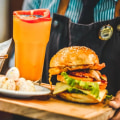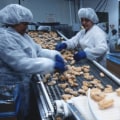Do you ever wonder if being a food taster is a real job? The answer is yes! Food tasters can work full-time as food technicians, scientists, and salespeople. They can also be regular consumers who consult companies. Many of these consumers work in other fields of the food industry. A professional flavor tester evaluates the flavor, texture, aroma, color, and other qualities of food products. In this profession, you eat food from manufacturers, chain restaurants, or other food producers.
Then you judge them by specific traits. Your responsibilities include rating each food in these particular areas and explaining the basis of your opinion. A professional food taster can be a professionally trained culinary expert with a well-developed palate or a consumer who works for market research panels part time. In both jobs, their tasks include tasting products and documenting their opinions orally or in writing. A food taster is a person who eats food prepared for someone else to confirm that they are safe to eat.
Anyone who tastes drinks in this way is known as a copero. The person to whom the food is being served is usually an important person, such as a monarch or someone under threat of murder or harm. Food tasters are responsible for ensuring that food served at restaurants, catering events, and other establishments is safe to eat. They taste several dishes before serving them to customers to check for signs of contamination or deterioration. In addition to independent sensory testing companies, some manufacturers also hire food tasters directly.
This is causing greater demand for food evaluators who can ensure that products meet these standards. As a food taster, you'll have the opportunity to try new foods and give feedback on their flavor and texture. This training may include learning the company's food preparation and handling procedures, as well as the ingredients and recipes they use. For example, if a food product is supposed to be spicy but it isn't, a food taster can realize this and alert the production team to the change. Food tasters can rise to positions of greater responsibility within their company, such as that of quality control manager. Food tasters must have a thorough understanding of food safety rules and practices to ensure that the food they try is safe for the public.
Food tasters usually work regular hours, although they may have to work overtime or on weekends during busy periods. In addition, food tasters may need to perform several rounds of tests to ensure that a product meets the highest standards. To remain competitive, food tasters must develop a deep knowledge of local cuisine and be able to pair it with complementary wines and spirits. Once you are confident in your tasting skills, seek professional flavor tester positions at food manufacturing companies. You should also be able to identify any unusual flavors or textures that may indicate a problem with the food.
The health and wellness trend is having a major impact on the food industry, as consumers seek healthier options that continue to taste good. As a professional taster, you know what you like, but it's also important to stay in touch with what consumers demand.







Leave a Comment